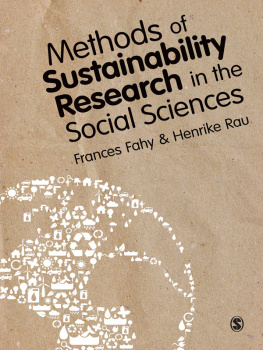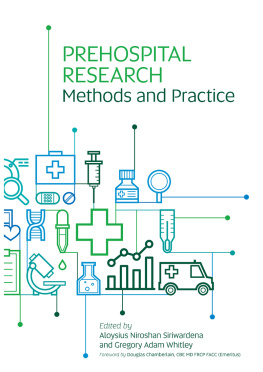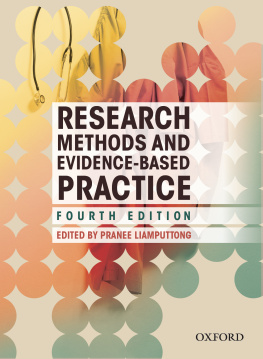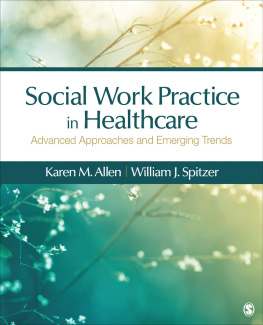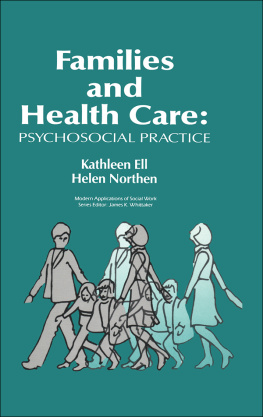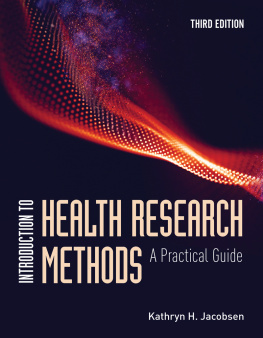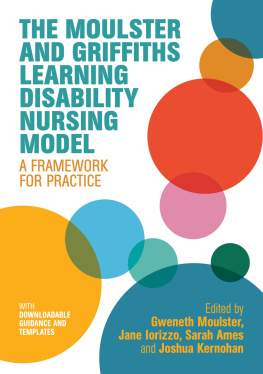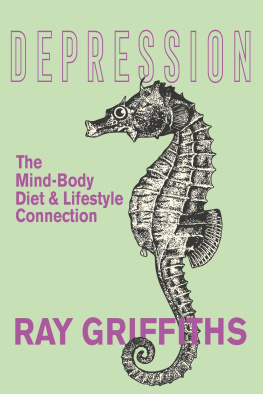RESEARCH METHODS FOR HEALTH CARE PRACTICE
RESEARCH METHODS FOR HEALTH CARE PRACTICE
FRANCES GRIFFITHS
Frances Griffiths 2009
First published 2009
Apart from any fair dealing for the purposes of research or private study, or criticism or review, as permitted under the Copyright, Designs and Patents Act, 1988, this publication may be reproduced, stored or transmitted in any form, or by any means, only with the prior permission in writing of the publishers, or in the case of reprographic reproduction, in accordance with the terms of licences issued by the Copyright Licensing Agency. Enquiries concerning reproduction outside those terms should be sent to the publishers.
SAGE Publications Ltd
1 Olivers Yard
55 City Road
London EC1Y 1SP
SAGE Publications Inc.
2455 Teller Road
Thousand Oaks, California 91320
SAGE Publications India Pvt Ltd
B 1/I 1 Mohan Cooperative Industrial Area
Mathura Road, Post Bag 7
New Delhi 110 044
SAGE Publications Asia-Pacific Pte Ltd
33 Pekin Street #02-01
Far East Square
Singapore 048763
Library of Congress Control Number: 2008938923
British Library Cataloguing in Publication data
A catalogue record for this book is available from the British Library
ISBN 978-1-4129-3576-0
ISBN 978-1-4129-3577-7 (pbk)
Typeset by C&M Digitals (P) Ltd, Chennai, India
Printed in Great Britain by CPI Antony Rowe, Chippenham, Wiltshire
Printed on paper from sustainable resources
List of Figures, Tables and Boxes
Figures
Tables
Boxes
Acknowledgements
This book was made possible by my experience of teaching and learning from students undertaking research projects, many of whom were also working as health professionals. I am also indebted to many colleagues who, over the years and in different places, have shared ideas with me, worked with me, encouraged me, taught me and left me to learn in my own way.
The examples used in the book draw on the research ideas and projects of students and colleagues. I am grateful to the referees and publisher who read a draft of this book, gave helpful feedback and encouraged me to complete it. The unquestioning support of family, friends and colleagues has been vital to the writing of this book.
This book was written while the author was funded by the UK Department of Health through a National Primary Care Career Scientist Award for undertaking research and scholarship on Complexity and Healthcare. The text is the responsibility of the author.
Introduction
I have written this book with a wide audience in mind. Health professionals, those new to research, teachers, research users, managers, students, experienced researchers will all benefit from the detailed guidance. It is illustrated throughout with carefully chosen case examples that will be familiar to health professionals but accessible to everyone.
This book is for you if you are a health professional keen to undertake research that is of direct relevance to health care practice. You have probably got an idea of what you want to investigate, such as something that troubles you in your clinical practice. You may have some other motivation for doing this, perhaps a research degree or dissertation, or perhaps frustration with your clinical work or the health service.
This book is for you if you are unsure how to get started on research. It takes you through each step in great detail, making sure that what you actually research is what you really want to research. It guides you through research that reveals how and why things happen the way they do and gives you results that you can use in health care practice.
You may have some knowledge of research but are confused by the different types of research or cannot see how you could use the various research methods. Maybe you were told that small research studies are a waste of time. This book gives in-depth illustrations and examples of the different approaches to research and the arguments about their usefulness. It explains how different research methods relate to each other and how small research studies can contribute new knowledge about our world.
You may have talked to people doing research who are confident about what they are doing and are clear about the difference between theory and hypothesis, between qualitative and quantitative research, between an interview study and a survey and between a research user and a research participant. If these differences are not so clear to you, then this book is for you as it clarifies these distinctions. It avoids using jargon and provides you with a glossary of words used in research.
This book is also for you if you:
- teach research methods at undergraduate or postgraduate level to health professionals in training or practice. The book provides a structure for working through the issues of developing research, including critical thinking and critical use of research methods.
- are a research user such as an advisor to a research team, a member of a research user group or on a research ethics committee. This book will introduce you to the way researchers think and to research methods that are useful for health care practice. The Glossary also provides non-technical explanations.
- manage a health care service and want to encourage a critical approach to developing an innovative and evidence-based service where research becomes part of everyday clinical practice.
- are an experienced researcher interested in exploring what is distinctive about research for health care practice.
The research process and the structure of the book
The first chapter of this book, Research for Health Care Practice, introduces you to research and the various types of research related to health care practice. It explores the basics of research including how we think about the world and what our research can tell us about how it works. The research process as mapped out in guides you through the different phases of research.
Phase I of the research process is discussed in on to the next phase. It may seem that these steps are really preparation for research rather than the research itself, which we often think of as collecting and analysing data. These early steps underpin the whole of our research. Taking time and care on this phase ensures that the rest of the research process goes well.
Table 0.1 The research process
In phase I and throughout the research process we need to consider the ethical implications of the research. This is discussed in , Considering the Ethics of Your Research.
The perspective of future users of the results of our research can be of great value and is discussed in , Involving Users in Your Research. Users can contribute throughout the research process.
Once we know what we want to research there is a further stage (phase II) of preparation needed, before designing the details of our research. This is discussed in , Preparing to Design Research for Health Care Practice. This phase ensures that we understand as much as possible about what we want to research and are clear about the focus of our research and the best way of approaching it. It is at this point that our decisions will determine the way we collect our data.





